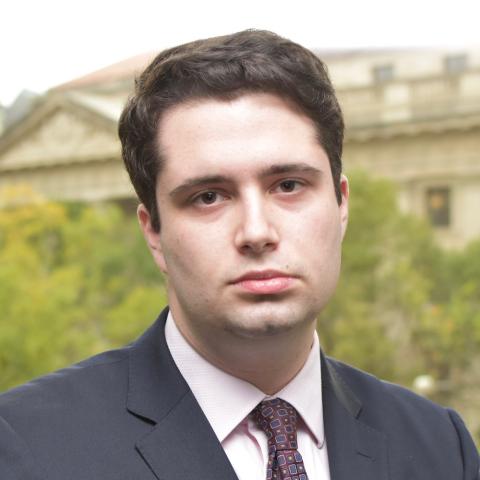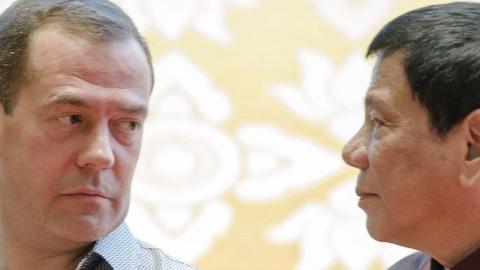Rodrigo Duterte has made a point of making a statement that seems to reverberate through the foreign policy community almost every other day for the past two weeks—and today did not disappoint. Reuters reports:
Philippine President Rodrigo Duterte said on Monday he would visit Russia and China this year to chart an independent foreign policy and "open alliances" with two powers with historic rivalries with the United States.
Duterte said the Philippines was at the "point of no return" in its relations with former colonial ruler the United States, so he wanted to strengthen ties with others, and picked two global powers with which Washington has been sparring with on the international political stage.
He last week declared he would soon -- and often -- visit China, with which ties remain frosty over a South China Sea arbitration ruling won by the Philippines in July. He said Russian Prime Minister Dmitry Medvedev was expecting him in Moscow.
Duterte had previously told his defense minister to look to China and Russia for weapons instead of to the United States. Then last week, he seemed to back off his comments a bit, saying "we need [the U.S] in the [South] China Sea." Thus far, it's all been rhetoric and no action, and today's statement is no different.
Still, his loose talk is bad news for U.S. Asia policy, and in particular for Obama's pivot. The Philippines isn't just a small piece of the Pivot to Asia; it's the lynchpin, with the Hague's ruling supposed to be the foundation upon which the U.S. would build a network of alliances that could push back against Beijing in the South China Sea. So far, China has only been able to get Laos and Cambodia on its side. If Manila ends up siding with Beijing (and Moscow), that would be the first country with significant claims in the South China Sea to abandon the United States' preferred position.
The next U.S. president is going to have to answer some big questions on Asia. Obama's pivot was a good idea, but it hasn't gone as well as planned. The next administration will need to make real adjustments, and with all of the turmoil in the Middle East and Europe, devoting the resources and attention to Asia that the pivot demands will be more difficult than it was when President Obama took office in 2009.

















